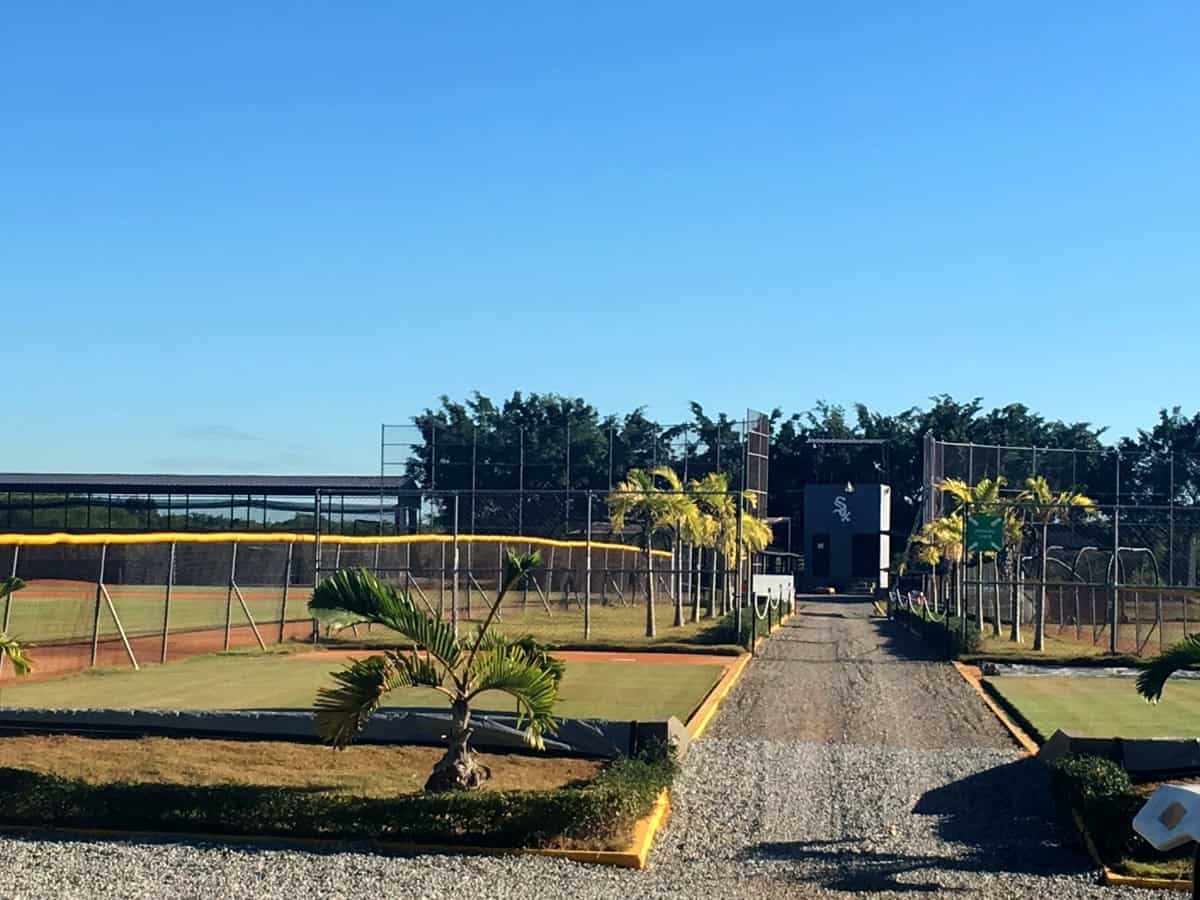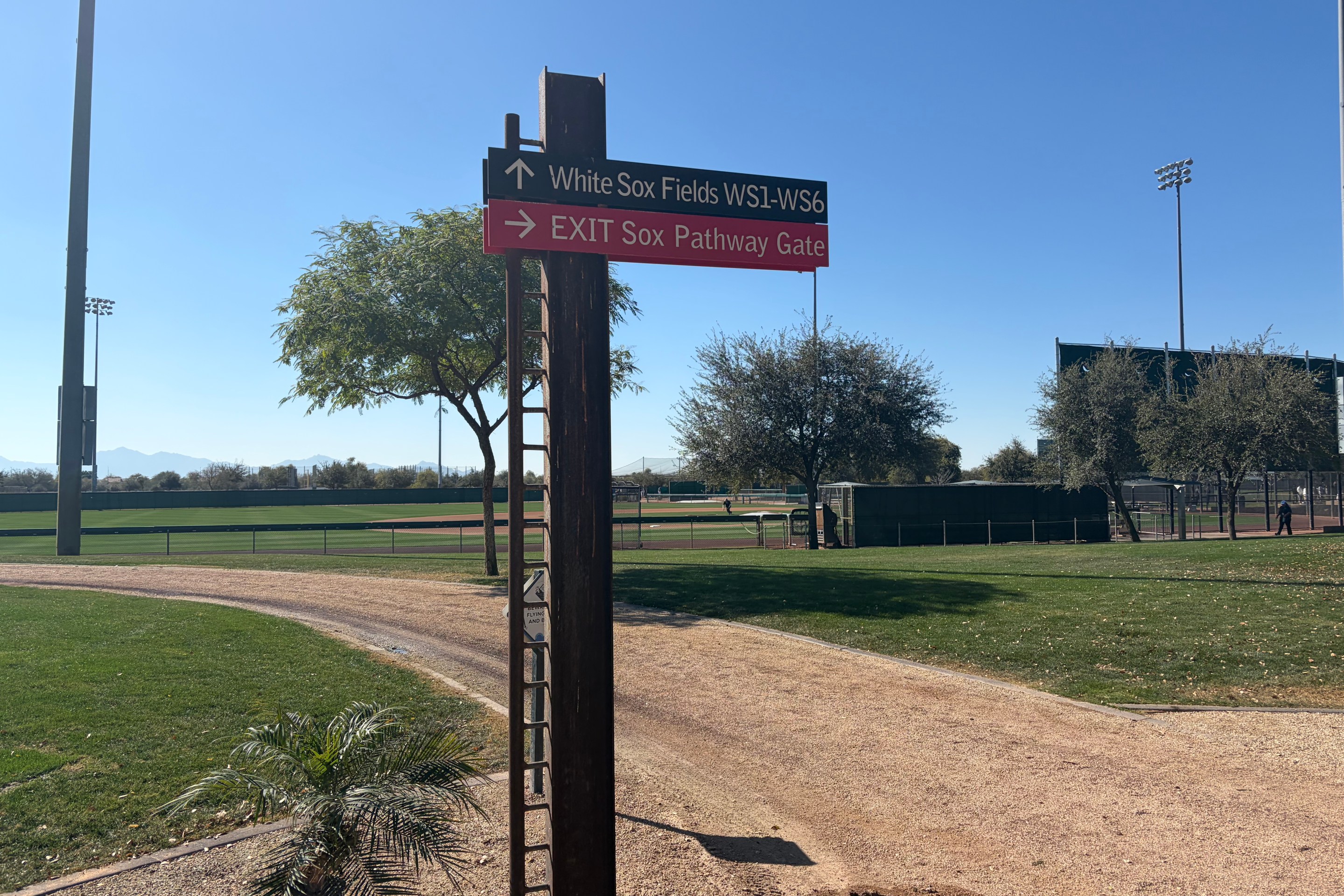If the early selling point of the Chris Getz administration is drastically tilted toward his ability to attract talent to his baseball operations department, rather than pulling in on-field talent that can assure his current major league roster pulls out of the abyss, new special assistant to the general manager David Keller is part of that former wave.
"I'm here for a reason, and a big part of that reason is that I believe in Chris and his vision and where the organization is headed," Keller said at MLB's winter meetings in Dallas. "I can't wait to do my part to help him fulfill that."
With ample experience in pro scouting with the Mets, Marlins and Red Sox, Keller is expected to be a trusted voice on larger player personnel decisions. But he was brought on to revamp the team's international amateur scouting department; an area where there's usually quite a long wait for fulfillment, to focus on longer development projects for which they recently haven't exerted the necessary patience. In the absence of overtly stated intentions to hire an international scouting director, this is Keller's baby, at least for the outset of his White Sox tenure.
Over the last four years, Keller said the focus of his work with the Mets shifted toward the international amateur side. The domestic amateur market has grown increasingly dominated by showcase events and travel teams flush with cash, resources and access to objective performance data, and more and more teams are shifting their assessments of professional talent to their internal models. In such a world, the international amateur world stands out as one of the few forums where Keller can achieve the sort of professional satisfaction that scouting offered more regularly when he was entering the industry almost 20 years ago.
"It's an avenue of player acquisition that has always been intriguing because of the complexity of the market, and the more time I've spent, the more I've really enjoyed the challenge and the mental gymnastics that go along with it," Keller said. "I find it incredibly challenging and invigorating. And at the end of the day -- and this is kind of selfish, probably -- these young men that we end up signing, the bonuses, regardless of what the bonuses end up being, it impacts their lives in such a tremendous way. I love the opportunity to be a part of helping them change their lives."
The past decade of White Sox Latin American pursuits have been dominated by signings that felt more like acquiring experienced professionals in an artificially simplified market, where international tournaments often provided more straightforward opportunities to scouting established Cuban players. Adding José Abreu and Luis Robert Jr. under Marco Paddy were big enough successes to paint over otherwise thin international contributions, whereas the failures of Yolbert Sánchez, Norge Vera, Yoelqui Céspedes and now Oscar Colás to become big league regulars made the lack of deep investment in the Dominican Republic look more ruinous.
Paddy gets judged by the signings that were made by the organization during his tenure, not just his stated intentions, and soon enough that will be true for Keller as well. But alongside a front office that had been signaling a desire to diversify its international attention as far back as last spring and reportedly engineered a large staffing overhaul of scouts in this department, Keller's view of the Dominican market is a central point where the new direction figures to diverge from the old.
"The international market represents an opportunity to acquire and sign impact athleticism," Keller said. "Not to say that there aren't great athletes playing baseball in the United States, but in countries like the Dominican Republic, that is their primary sport, and so their best athletes are playing baseball and that's our avenue to get better athletically."
Said in another way, the international market provides a way to shoot for the sort of ceiling and athleticism that quickly becomes more cost prohibitive in the MLB draft, and Keller wants the White Sox to "concentrate our efforts" on "where the majority of players from Latin America and players internationally come from," which he makes clear is borne out by numbers to be the Dominican Republic. Dedicating the majority of the international bonus pool to find Cuban role players at a reduced price from free agency is a smaller type of swing than what Keller is envisioning.
It's a logical pivot for an organization lacking both in stars developed through their academy and also simple stories of depth pieces added via smaller signings, but it also faces obvious challenges. Just coincidentally lining up with minor league players unionizing and demanding better compensation, MLB trimmed an affiliate level from teams and enforced a lower organizational headcount limit, with many across the industry fearing more cuts to come down the road. Latin American players signed as young as 16 obviously require a longer development track.
"The roster restrictions or limitations are challenging, because the second the players sign, they hit the roster, and that means that someone is more than likely out of the job," Keller said. "So the runway for players at all levels has become shorter, and the players that require the most patience, in my opinion, are the Latin American players who we are banking on their athleticism to turn on the baseball scale."
Another part of the challenge of finding value in the Dominican is the scarcity of things like international competition, or reasonable samples of objective information that make it easier to make informed decisions with a less robust operation. In keeping with that, Keller views his central task as building out "a process" for White Sox international amateur scouting to follow consistently year to year, replacing a departmental approach that other scouts across the league had come to regard as antiquated.
"Part of that process is gathering as much data and information as we can, but understanding that the data and information for players that are as young as a group of individuals that we're looking at traditionally is, is inconsistent," Keller said. "Being able to blend the data and information that we collect with -- to use your term -- old school scouting techniques and thought processes, I think that's the sweet spot where we hope to capitalize on making good decisions."
While Keller smirked at the comparison to SEC football programs having recruits tour their fancy new training facilities, he does view the White Sox's efforts to build a new academy in the Dominican as a vital recruiting tool that lines up with how frequently it's been offered up as the first big step in transforming the department. It's been a long time since the Sox were looked at as a player development engine with top-flight facilities, but certainly if they're going to be shopping at an age range where the Dominican Summer League is not something to skip over, Keller sees establishing the organization as a soft landing spot as essential.
"To not utilize [our academy] as a recruiting tool, and talking to players and their families about what the White Sox can do for them if they were to sign with us, that would be us missing out on an opportunity," Keller. "Anytime you're able to build a new facility and install technology and pump resources into a place that helps our players, I think it's a positive thing, right? We want to be a player-centric organization, a place that that cares about players. I care about players, I want them to do well. Having a place where they feel comfortable and can get their work and succeed and thrive? That's super important."






